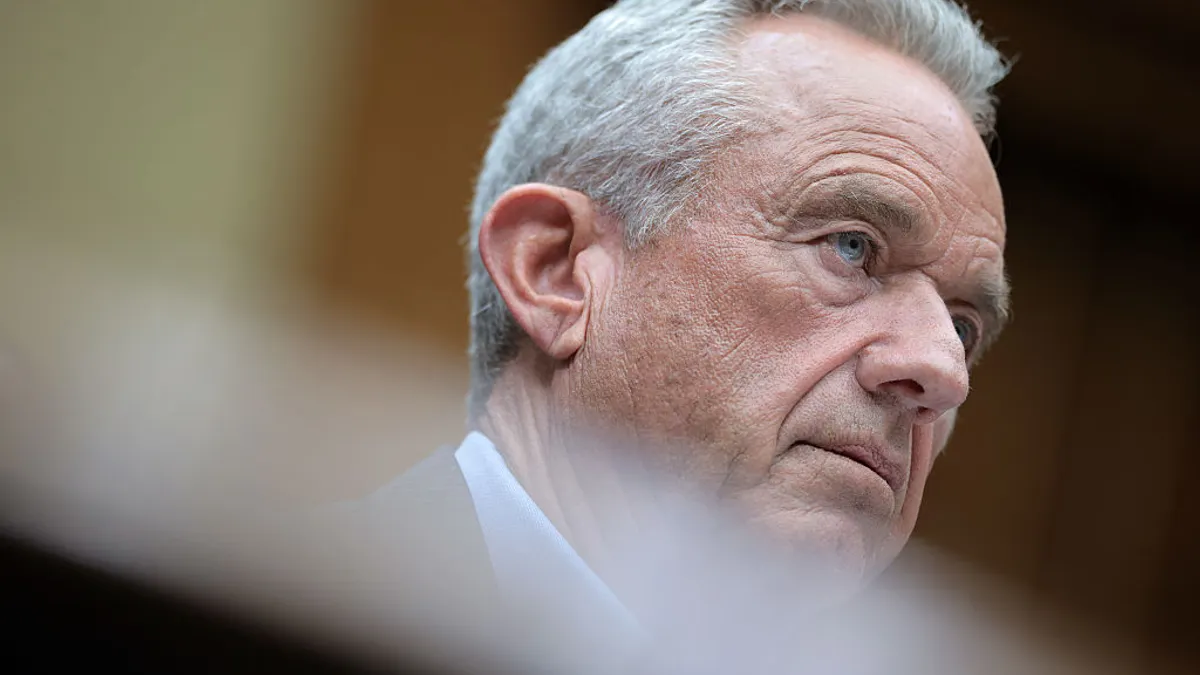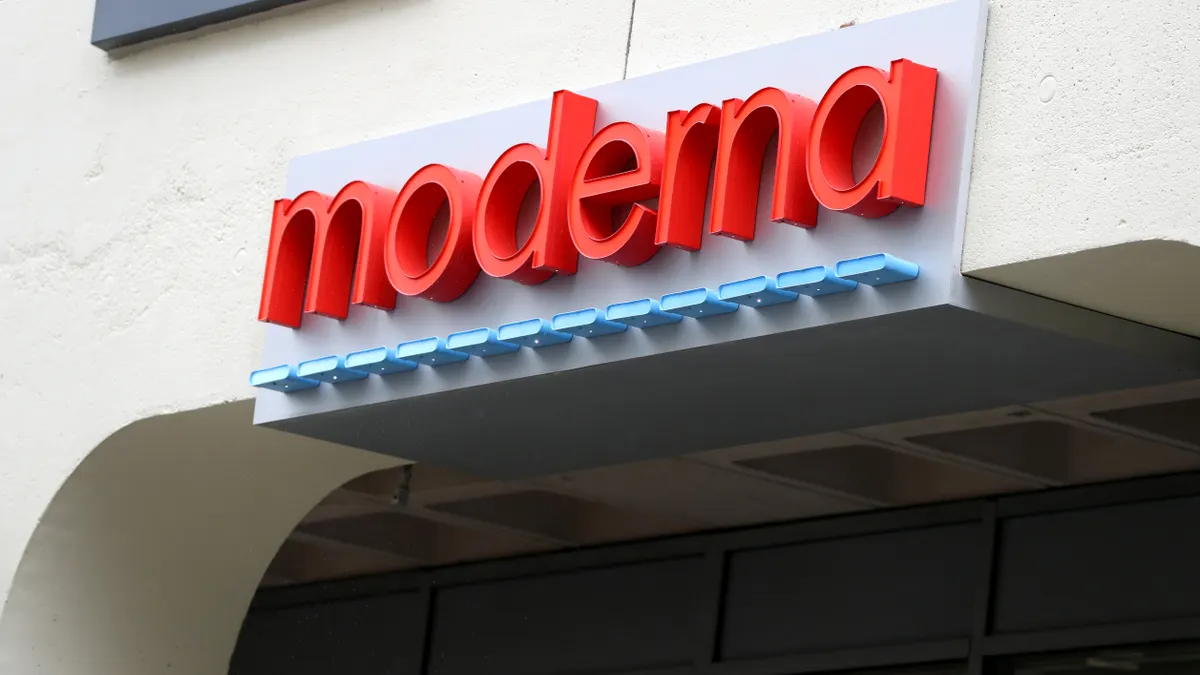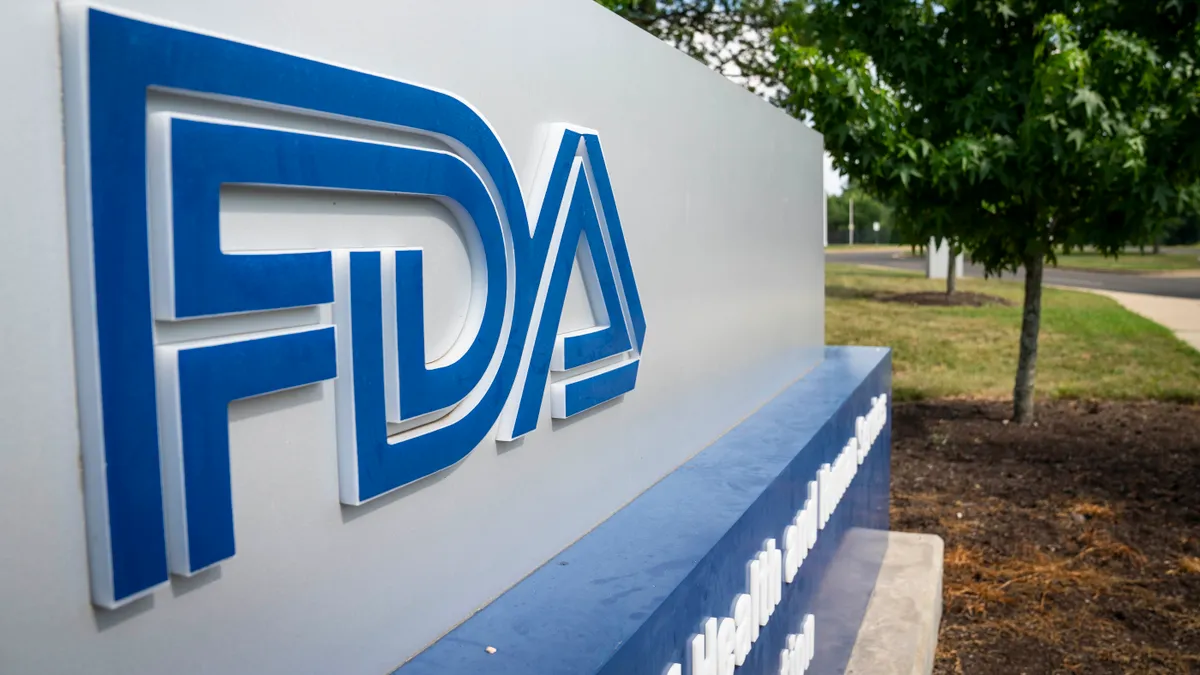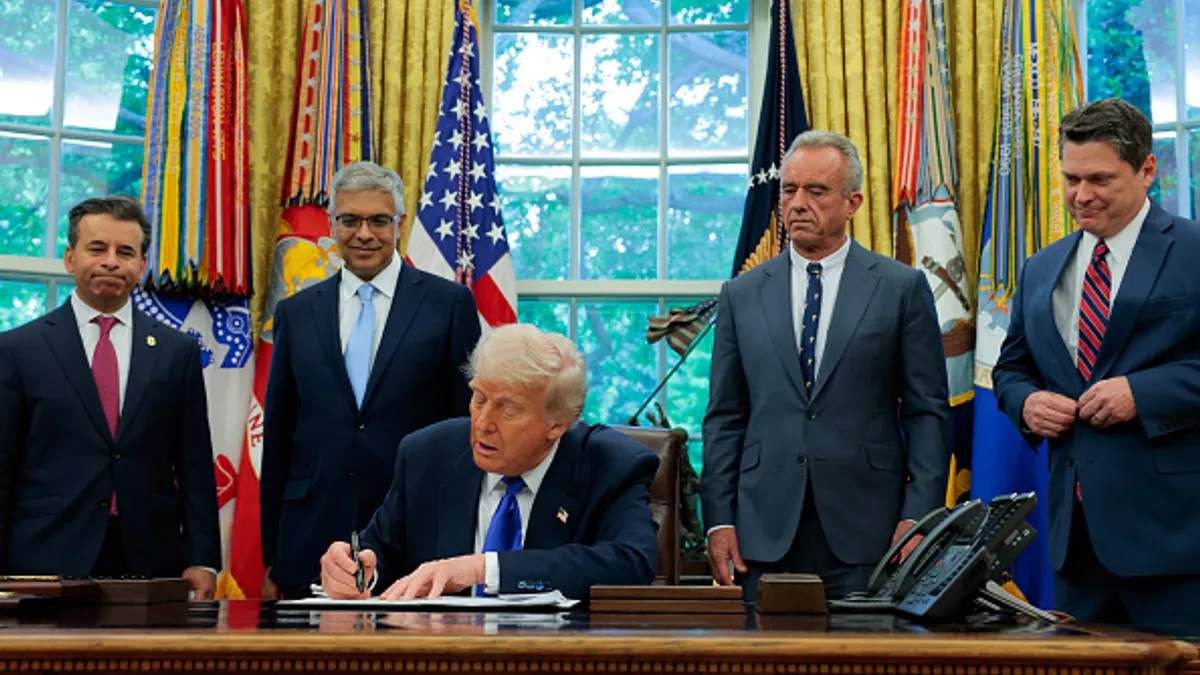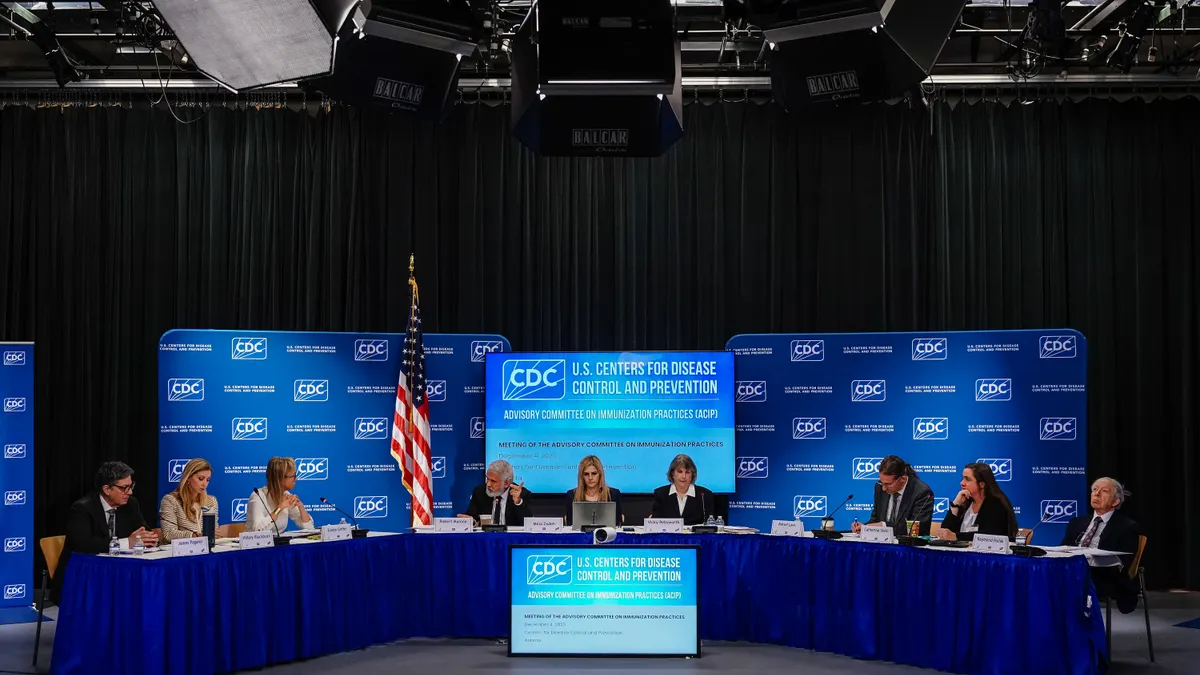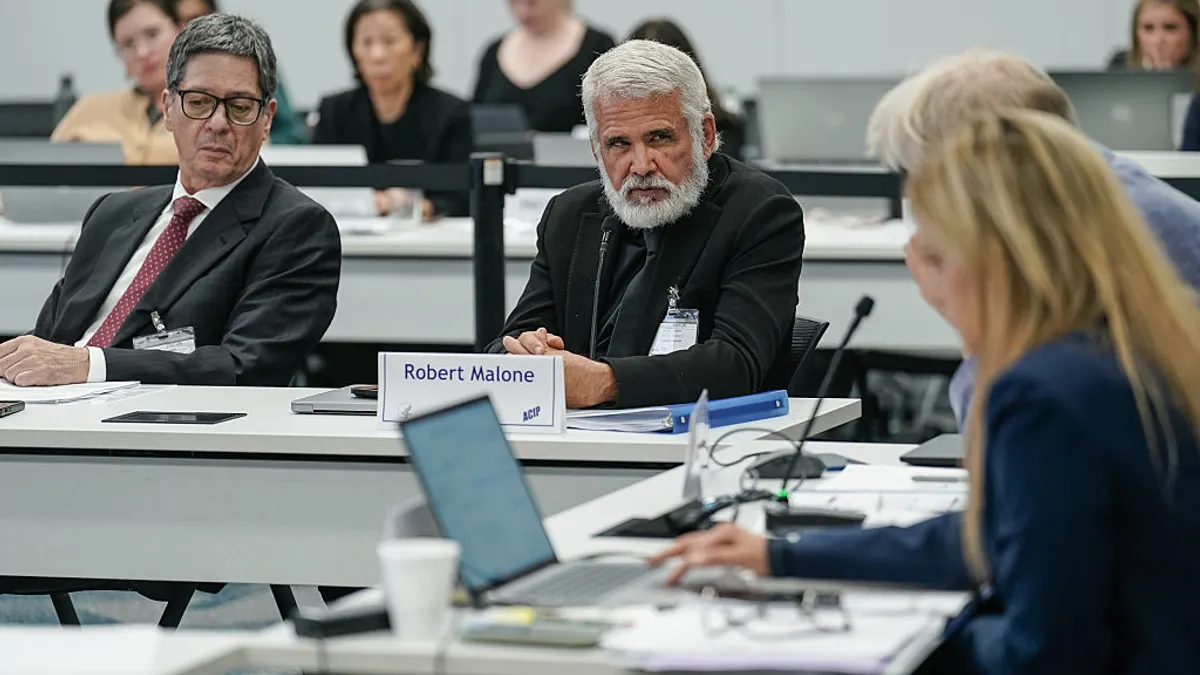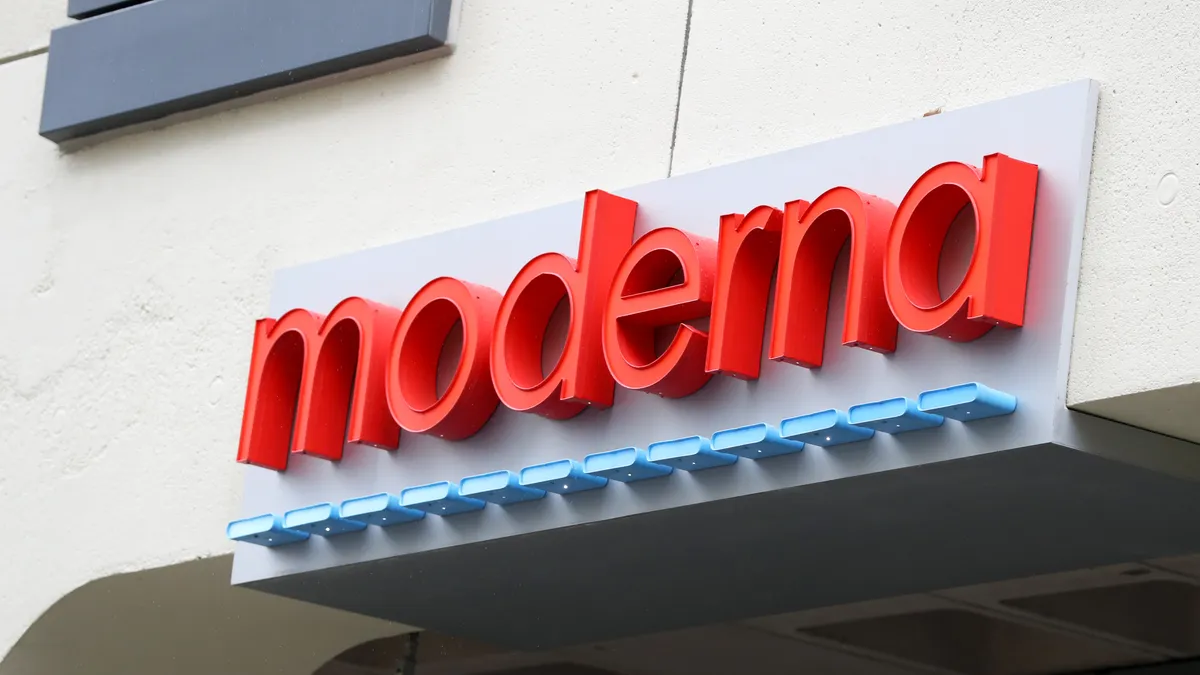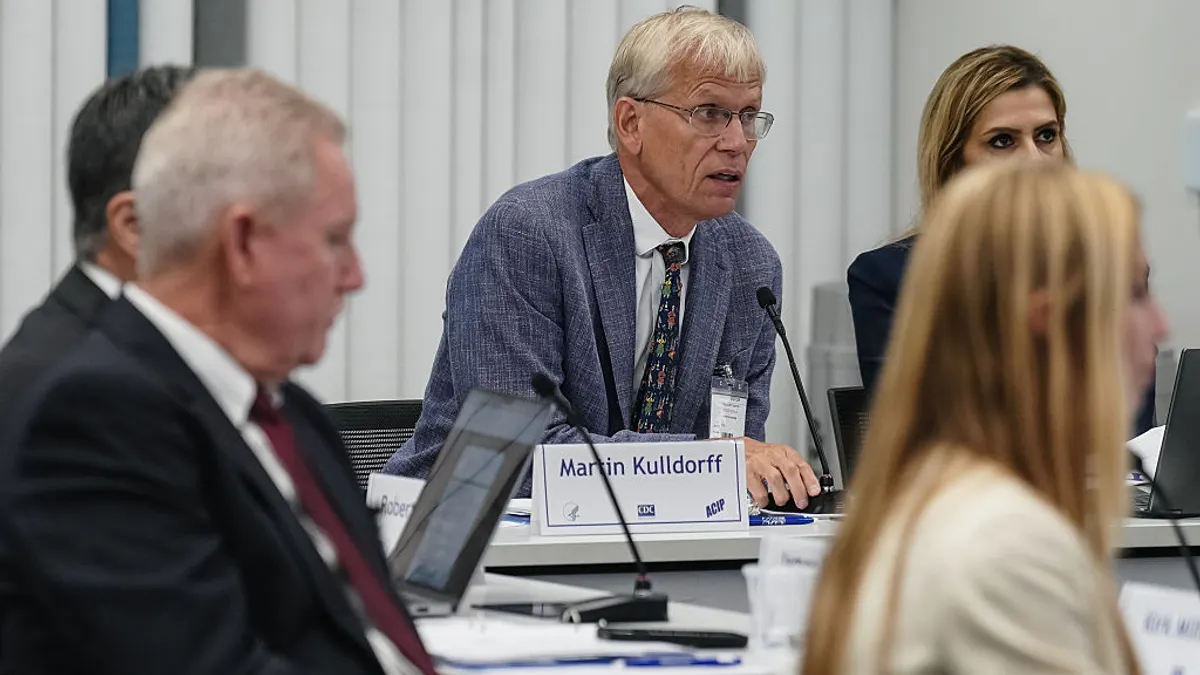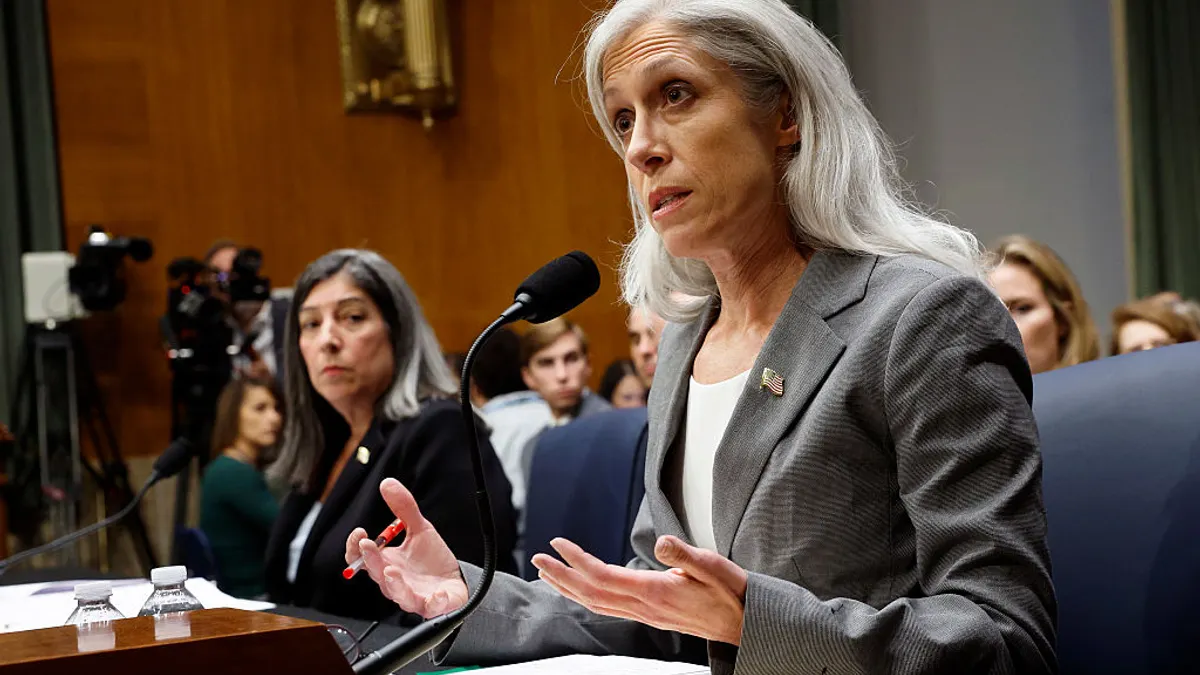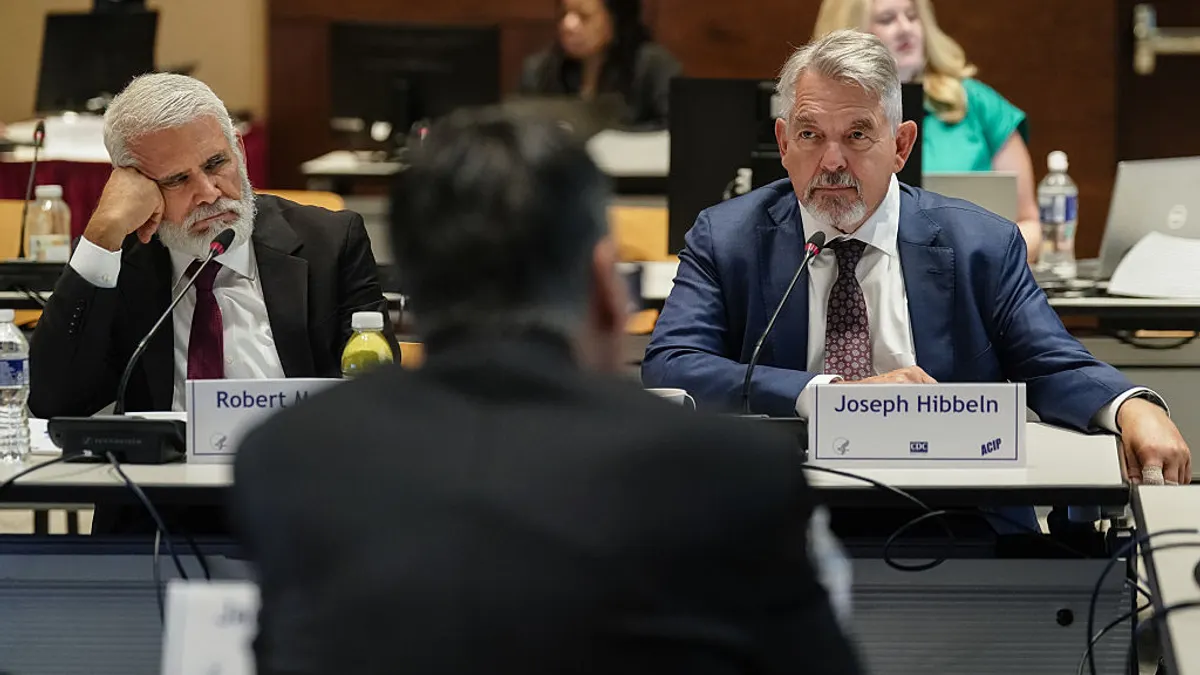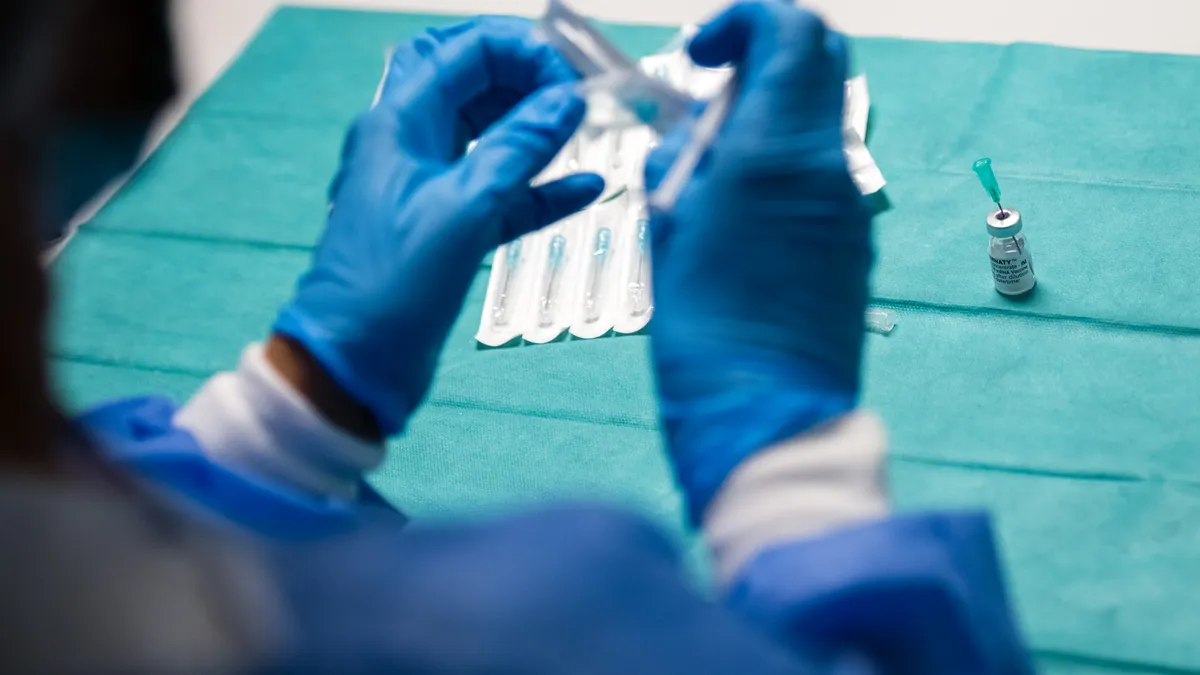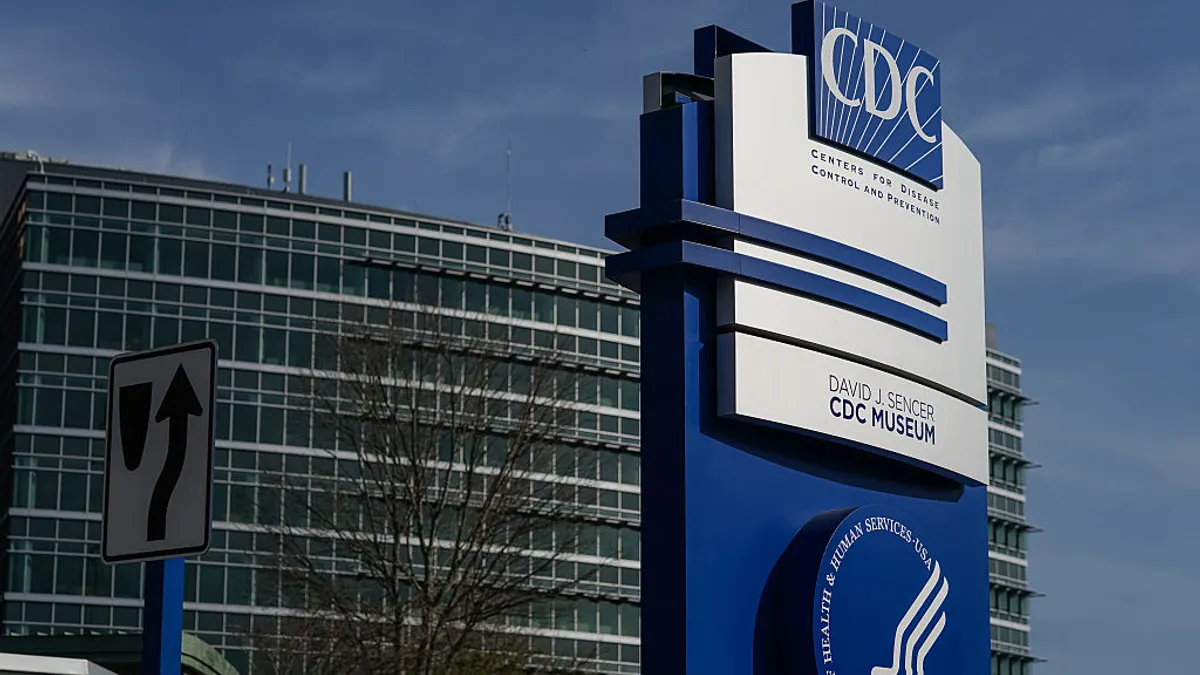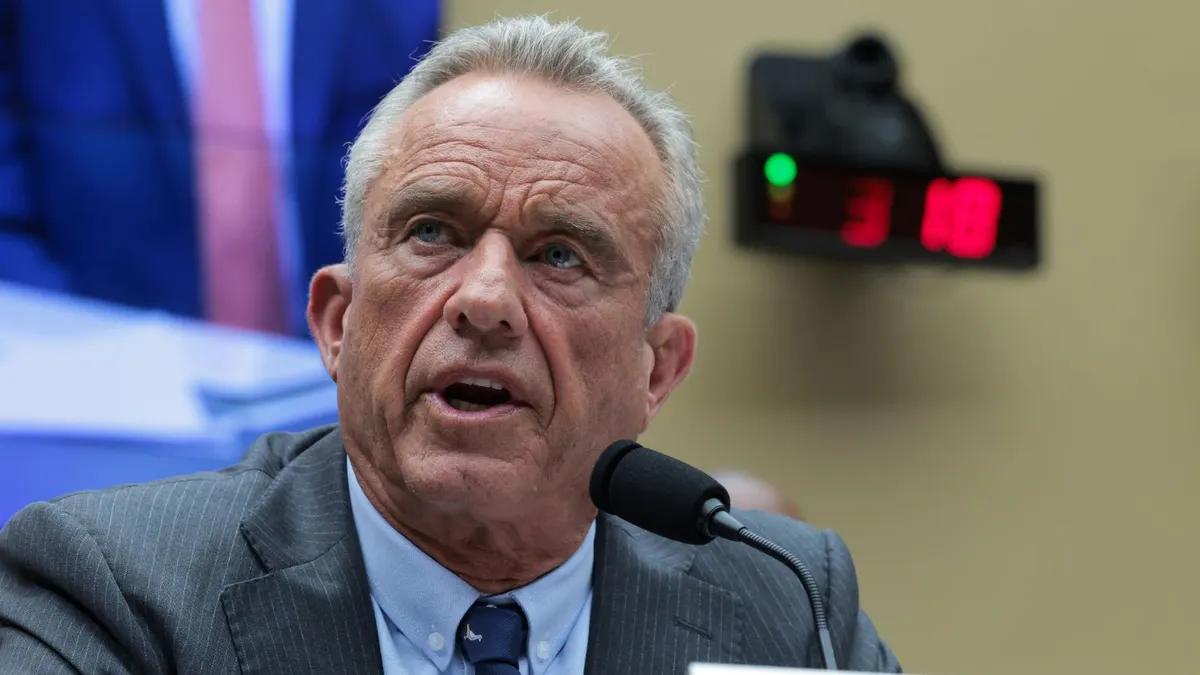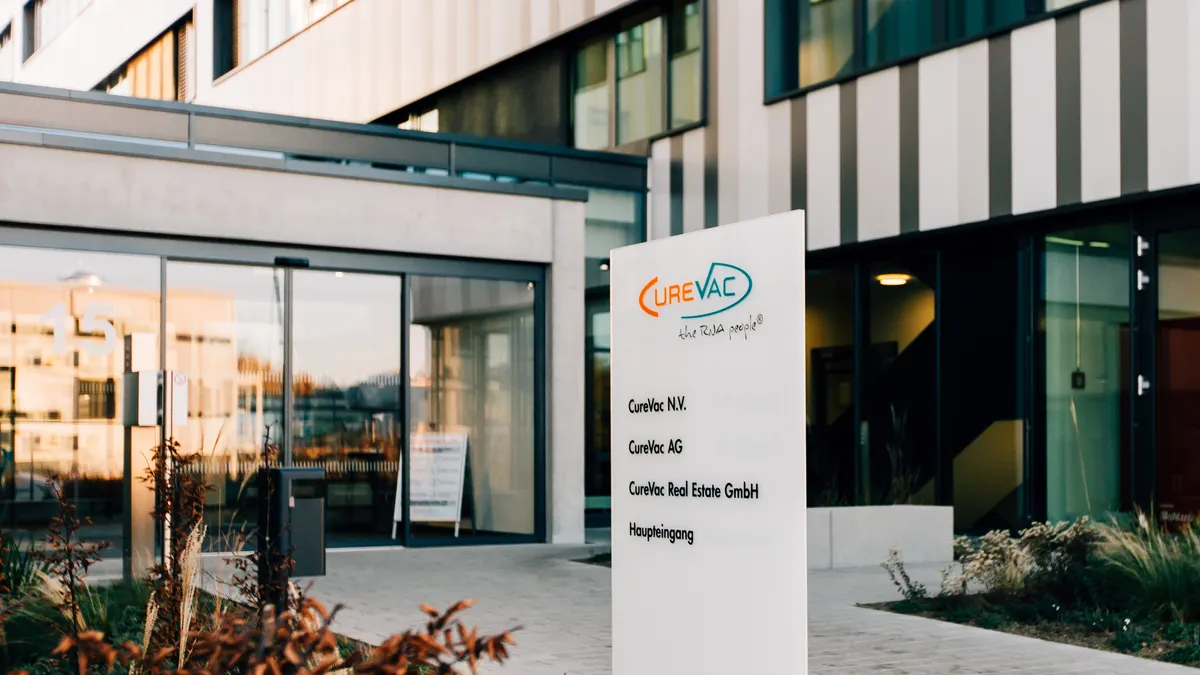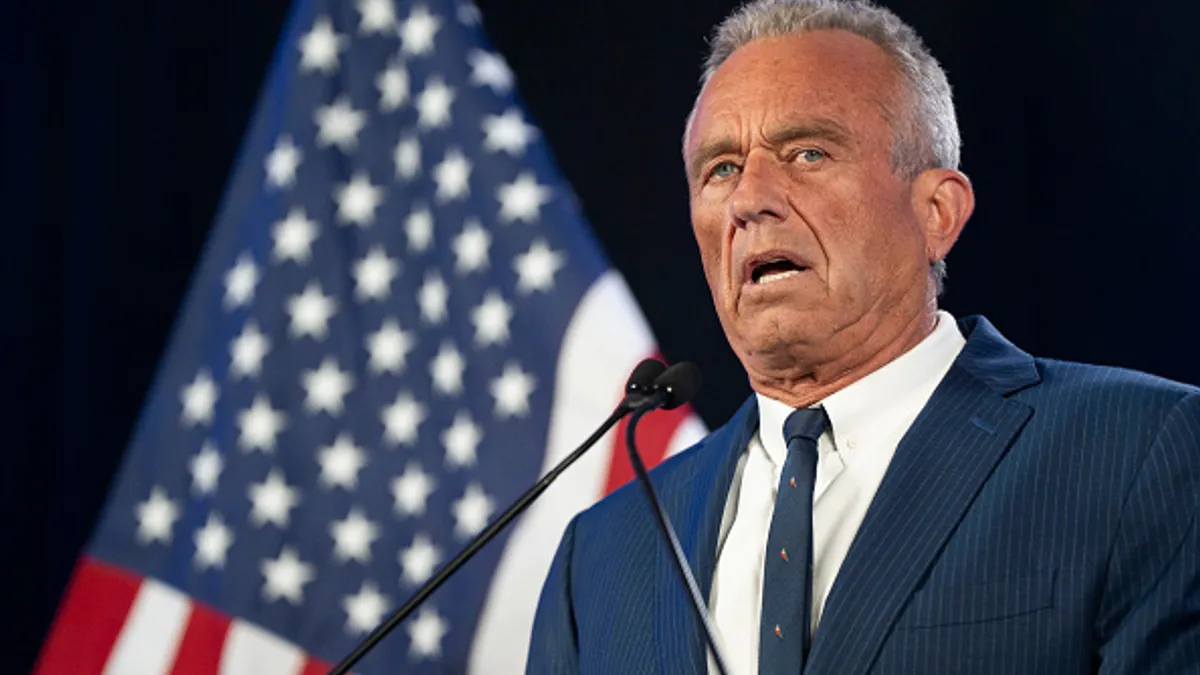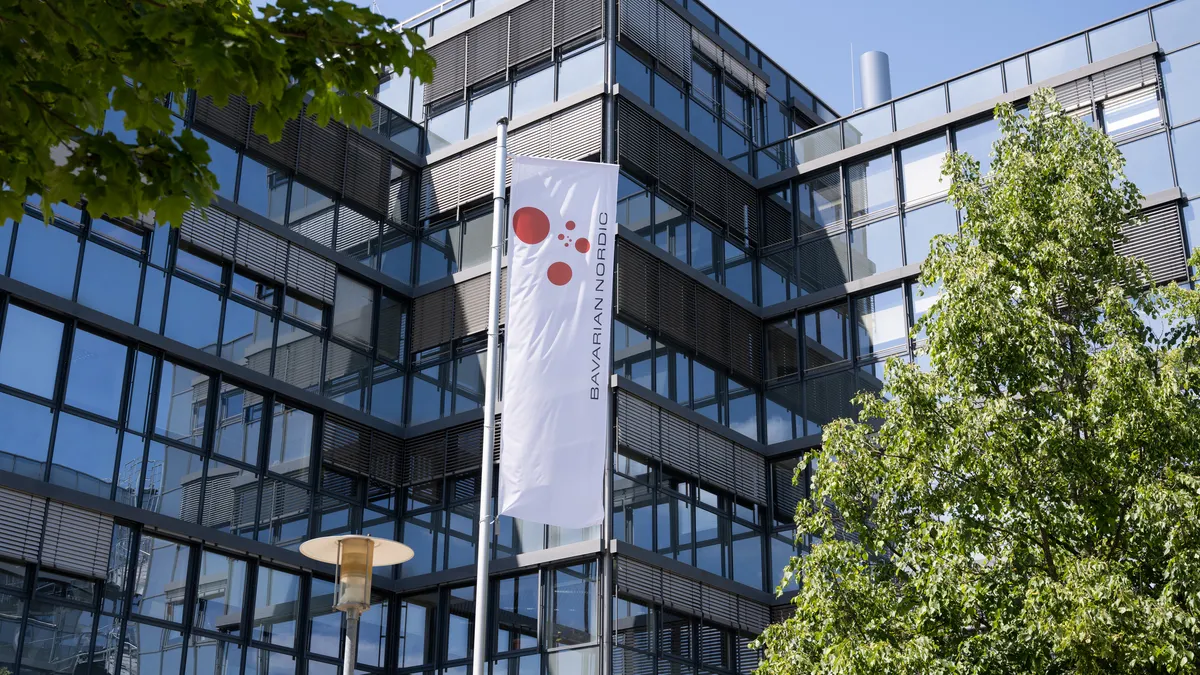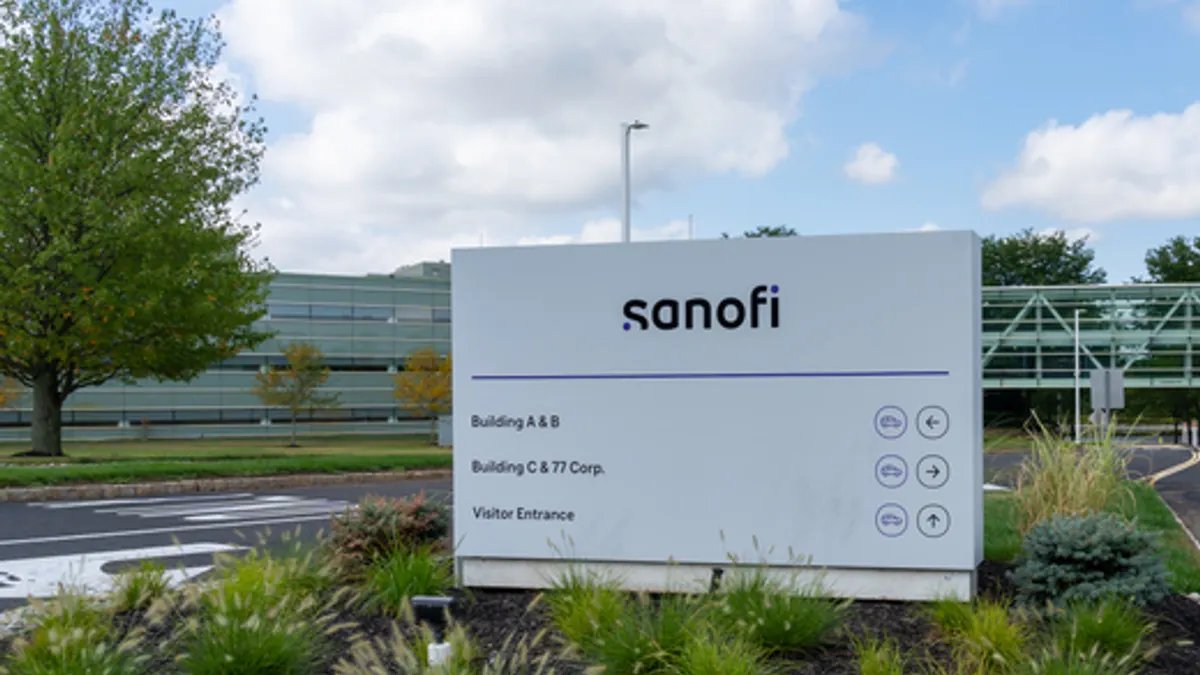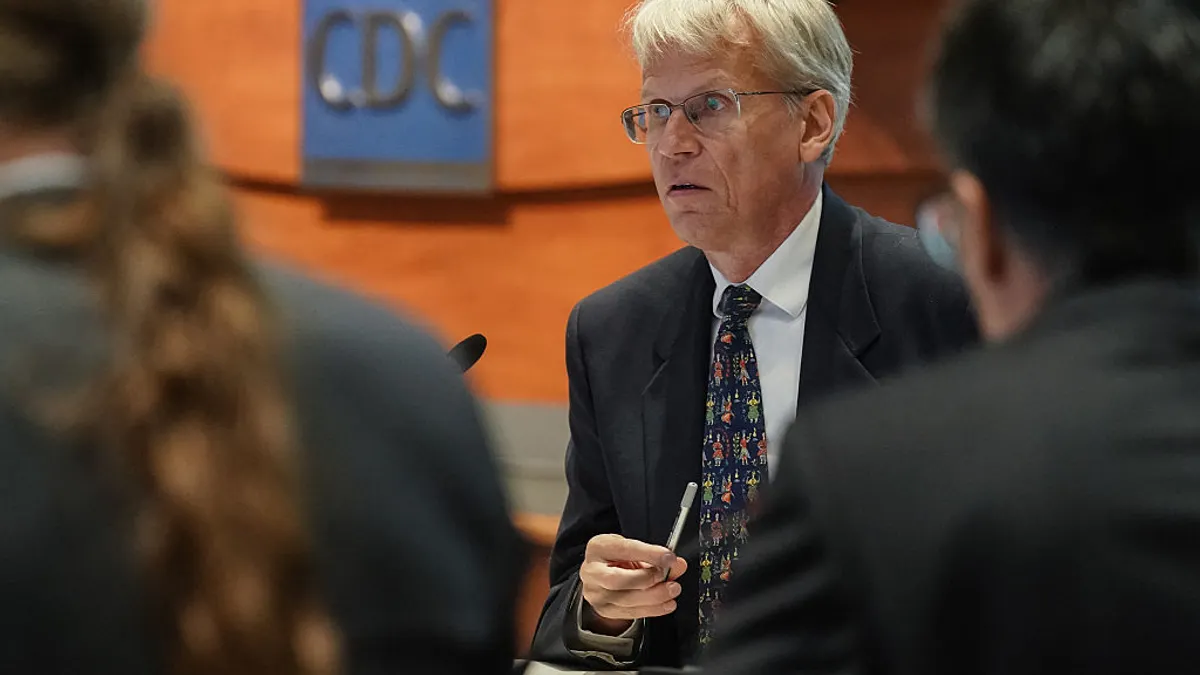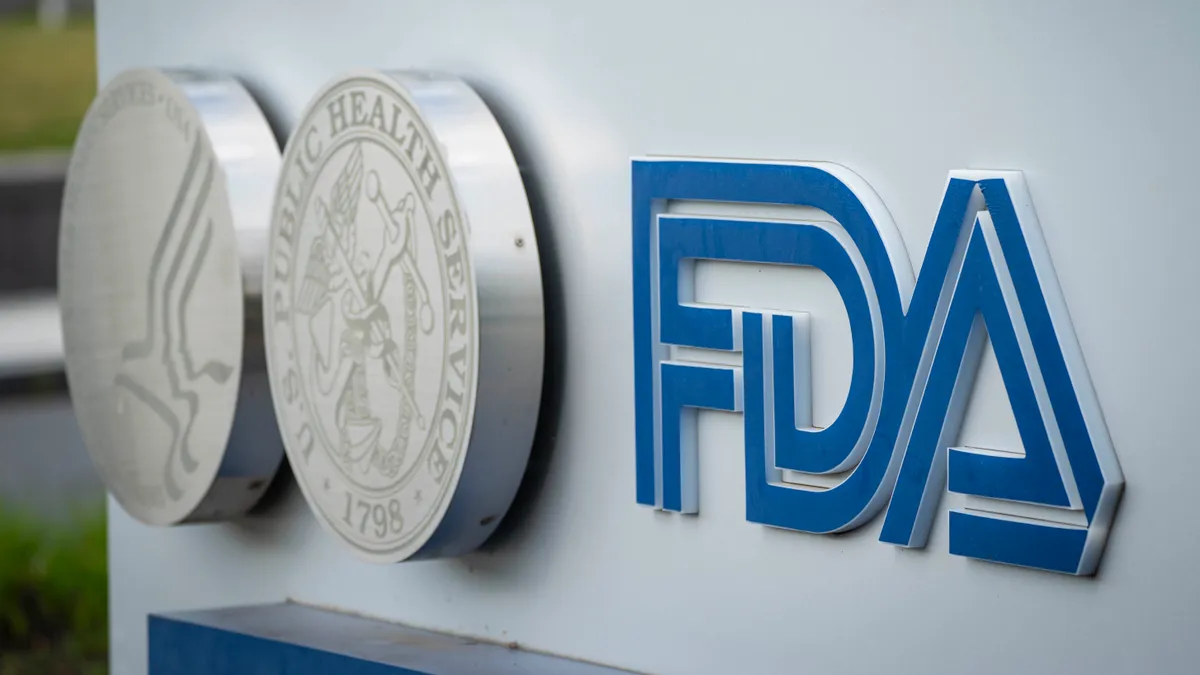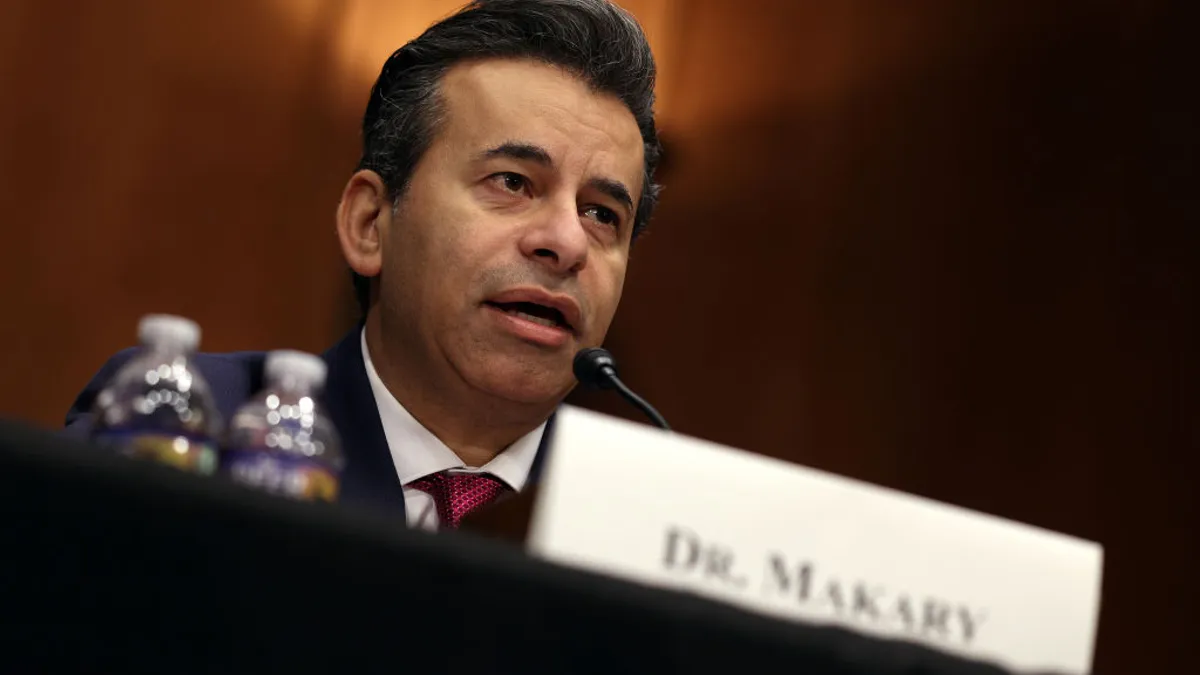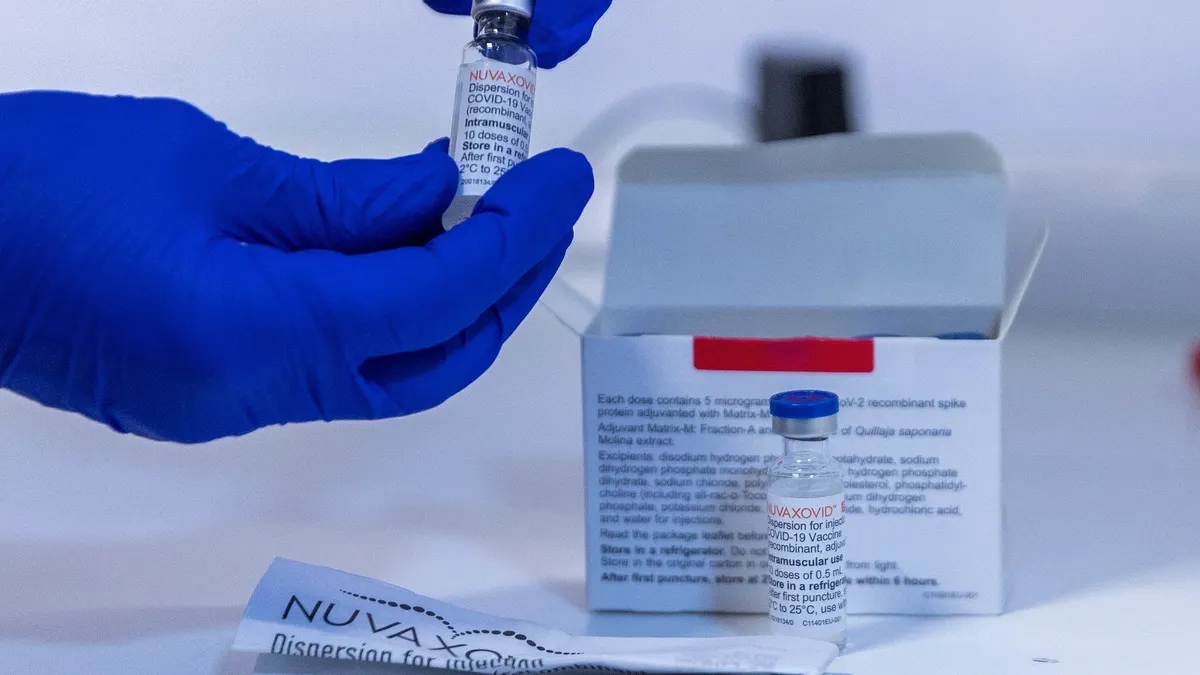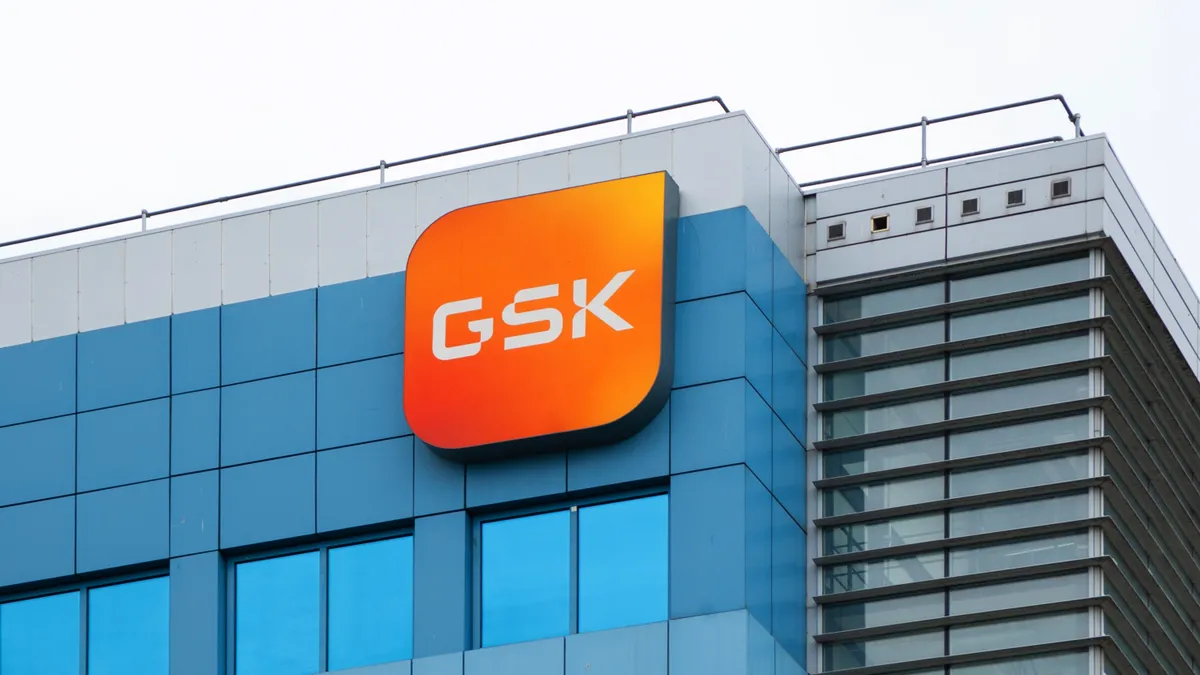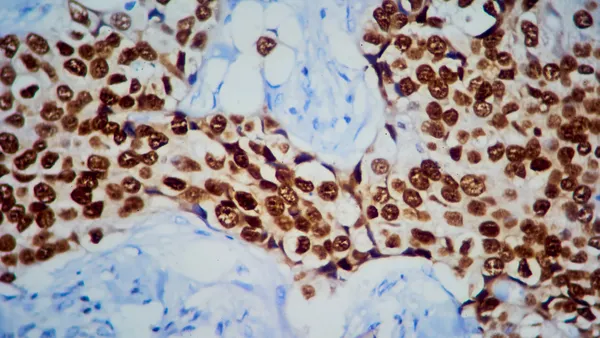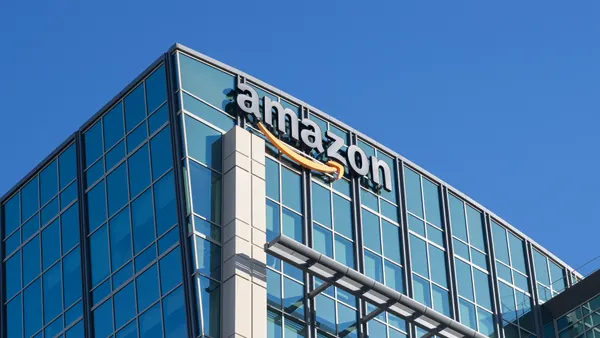To many scientists and doctors, messenger RNA vaccines are an incredible feat of modern medicine. But to top health leaders in the Trump administration, shots made with the technology pose more risks than they do benefits.
Earlier this month, Secretary Robert F. Kennedy Jr. directed the Department of Health and Human Services to cancel some $500 million in contracts for research and development of mRNA vaccines, which are credited with helping control the COVID-19 pandemic.
The controversial move is a U-turn from the first Trump Administration, which created “Operation Warp Speed” to develop, manufacture and distribute COVID vaccines in record time, and in the process gave mRNA technology a starring role.
“To go from the identification of a pathogen to the development of an efficacious vaccine within the period of nine months — never happened in human history, and it was only made possible because of mRNA,” Jeff Coller, a professor of RNA biology and therapeutics at Johns Hopkins University, said in an interview with BioPharma Dive.
“It's absolutely perplexing as to why President Trump would allow Robert Kennedy to undermine his legacy in creating these life-saving therapeutics that literally saved millions of lives,” Coller added.
Scientists worry Kennedy’s actions, which have followed other major changes in U.S. vaccine policy, might leave American medicine lagging behind China and other countries that once sought access to the same technology. Moreover, mRNA has shown promise as a drugmaking platform in other fields besides infectious disease, most notably in cancer.
Moving away from mRNA vaccines to embrace older technologies could delay the U.S. government’s response in future pandemics, too.
“If we go back and use the technologies [Kennedy] is proposing should be used for vaccinations, we would be five, six years into a pandemic with millions of lives lost before we even had a vaccine that might be able to work,” said Coller. “So this is a critical national security issue.”
Long a prominent critic of vaccines, Kennedy has questioned mRNA shots since the early days of the pandemic. In ordering the cancellation of HHS contracts, he claimed mRNA vaccines “fail to protect effectively against upper respiratory infections like COVID and flu,” despite the success of the COVID vaccines developed by Moderna and partners Pfizer and BioNTech. Their safety and efficacy was initially proven in large, placebo-controlled studies, and then by the experience of the tens of millions of people who received them around the world.
While they are associated with some side effects, including, in rare instances, potentially concerning heart inflammation, most people have mild or no adverse reactions. COVID can cause heart inflammation as well.
“The goal of this vaccine is to keep you out of the hospital, keep you out of the intensive care unit, and keep you out of the morgue,” said Paul Offit, a vaccine expert and professor of pediatrics at the Children’s Hospital of Philadelphia, in an interview with BioPharma Dive. “That's the goal. [Kennedy] doesn't understand that, or he does understand that and he's just saying what he says to scare people.”
HHS provided a list of data it says demonstrates the harms caused by mRNA vaccines. The studies appear cherry-picked to support that conclusion, however, and were compiled by individuals who have criticized the U.S.’s pandemic response.
National Institutes of Health Director Jay Bhattacharya, who in October 2020 co-wrote a proposal to end COVID isolation policies, claimed the administration defunded mRNA research because of public distrust of the technology. The NIH has also deprioritized some COVID research.
“COVID-19 is probably the most politically charged disease of the last 50 years or more, and there are people who have very strong feelings about how the disease was treated, epidemiologically, at the societal level, that has almost nothing to do with the potential of mRNA,” said Jonathan Kagan, co-founder of mRNA drug developer Corner Therapeutics and professor at Harvard Medical School, in an interview with BioPharma Dive.
“It just happens to be that the only FDA-approved drugs on the market today that use mRNA are COVID-19 drugs,” Kagan added.
Messenger RNA, a nucleic acid that cells use to translate genetic code into proteins, provides an easily adaptable foundation for medicines. That flexibility means scientists can respond more quickly in response to viral outbreaks, such as with avian influenza, than they can with traditional types of vaccines, which typically take longer to design and produce. It has aided Moderna and Pfizer in updating their COVID boosters yearly.
“Bird flu may never become a pandemic, but if it does, this kind of technology allows you to respond much more quickly than a traditional technology like whole-killed viral vaccine,” said Offit.
Kagan, of Corner Therapeutics, sees investment in mRNA as essential to U.S. science leadership, similar to how the federal government’s support of research in nuclear energy and physics helped the U.S. win the Cold War.
“It appears that our federal government does not realize that we're in the middle of another arms race — it's an arms race for biomedicine,” Kagan added.
Recent studies have shown mRNA medicines’ promise against several cancers, including those of the pancreas, colon and brain. Targeting cancer is now a focus for Moderna, as sales of its COVID vaccine have evaporated and the Food and Drug Administration has narrowed COVID vaccine approvals.
Moderna was one of the companies affected by HHS’ contract cancellations. The company did not respond when reached out to by BioPharma Dive.
Others affected by HHS’ cuts, including Sanofi, CSL Seqirus, Gritstone Bio and Emory University, did not reply to BioPharma Dive’s request for comment.
While a leading mRNA drug developer, BioNTech was not affected. In an emailed statement, the company said it continues to “believe in the potential of mRNA in medicine” in both infectious disease and in cancer.
Kagan believes positive data for mRNA cancer treatment could eventually sway the administration’s attitude toward the technology, but warned that its current policies will weigh on the field.
“When you cut back investment in this area, there's less chance for tangible innovation,” Kagan said.
Otello Stampacchia, managing director at life sciences investment firm Omega Funds, told BioPharma Dive that, while the firm doesn’t typically back vaccine developers, HHS’ messaging does affect investment broadly.
“It's super hard for a firm like ours to touch those things when there's such a clear political blowback," Stampacchia said.
Coller, who is also on the board of the Alliance for mRNA Medicines, noted that in a survey conducted by the group earlier in the year, about half of respondents indicated their mRNA-developing companies had already experienced negative consequences from federal policy changes.
“These actions are scaring manufacturing and biotech away from the United States,” Coller added. “I think [the HHS announcement] was a shot across the bow to the industry that you're not welcome here anymore,” Coller added.
Coller and Kagan both agreed HHS’ actions give an opening to other countries like China to make up ground in mRNA drug development.
“China is accelerating, while the United States is killing the investments that they've already made and stifling new ones,” Kagan said. “That differential, sadly, is going to increase if we stay on this path.”
“The future is very bright for mRNA research in other countries,” Coller said.
Gwendolyn Wu contributed reporting.



